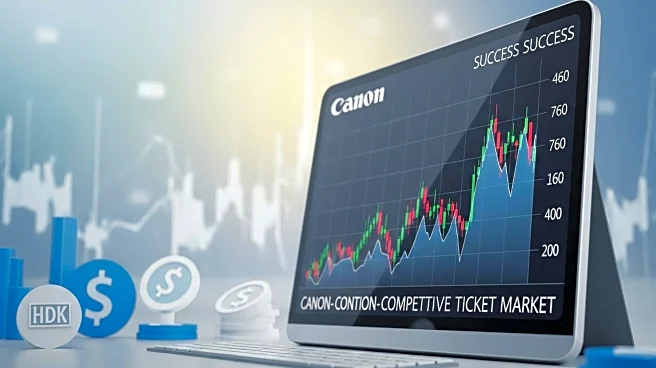What's Happening?
StubHub, a prominent ticket resale marketplace, has launched its initial public offering (IPO), raising $800 million. The company, co-founded by Eric Baker in 2000, was initially acquired by eBay in 2007 and later sold to Viagogo in 2020. The IPO saw StubHub selling 34 million shares at a price of $23.50 each, within the expected range of $22 to $25. However, the stock opened at $25.35 and closed at $22, marking a 6.4% decline from its offering price. StubHub's platform, which facilitates ticket sales for events like sports and concerts, processed over 40 million ticket sales last year across 200 countries. Despite a revenue increase of 29.5% in 2024 to $1.77 billion, the company reported a net loss of $22.2 million in the first quarter of this year.
Why It's Important?
The IPO of StubHub is significant as it highlights the competitive nature of the ticket resale market, which is estimated to be worth over $700 billion globally. StubHub faces competition from major players like Live Nation's TicketMaster and smaller companies such as Vivid Seats and SeatGeek. The market's competitiveness is further intensified by regulatory scrutiny over ticket fees and the use of automated systems for ticket resales. The IPO's performance also reflects investor sentiment towards companies reliant on discretionary consumer spending, especially in a market that is seeing increased regulatory attention.
What's Next?
Following the IPO, StubHub will need to navigate the challenges posed by its competitive landscape and regulatory environment. The company may focus on enhancing its platform to better compete with rivals and address regulatory concerns. Investors will likely monitor StubHub's financial performance and strategic initiatives closely, as well as any regulatory developments that could impact the ticket resale industry.
Beyond the Headlines
The IPO underscores broader trends in the ticket resale industry, including the impact of technology on ticket distribution and the growing importance of regulatory compliance. As the industry evolves, companies like StubHub may need to innovate to maintain their market position and address consumer and regulatory expectations.










